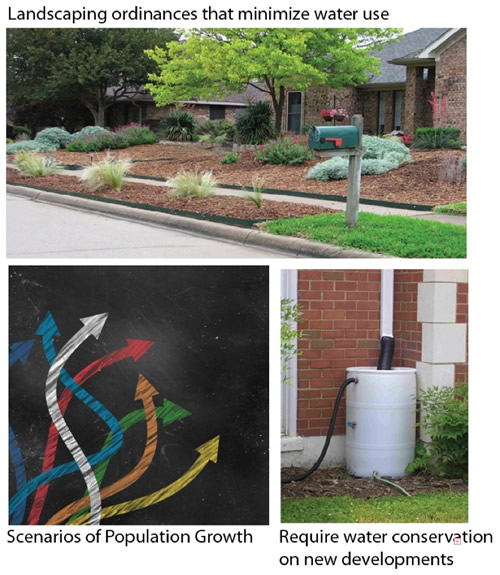News Article
March 30, 2015
How Can City Planners Contribute to Urban Water Conservation?
Urban populations across the U.S. are growing, and planning for urban water supplies is critical to ensure that this most critical of resources is available to support future populations. While urbanization poses a multitude of challenges for providing and sustaining water resources, there are opportunities that exist in cities as well. Cities provide education and income, foster creativity and innovation, and will be the future of most of humanity. Research Assistant Philip Stoker and his PhD adviser Dr. Sarah Hinners are asking how city planners can contribute to urban water conservation efforts.
Stoker has interviewed over a dozen water managers and city planners across four western states to answer this question. The interviews revealed insights into current conservation efforts, barriers to water conservation, and the role of the city planner. The most important thing planners can do is to work water resources into their planning processes, and to consider water resources in each decision. This may involve including an individual from a water management agency on a land use planning organization’s staff. If not directly staffing a water supply planner, they should regularly involve their local water managers and incorporate these managers into planning processes and decisions. Some planners may consider water as “not in my jurisdiction,” and water may not even be on some planners’ radar. The goal is to break down these planning silos and recognize water resources in land use planning processes and decisions.
The goal of Stoker’s research is to highlight good examples and practices so that water conservation efforts across the U.S. can achieve the results they seek. He said he appreciates the contributions of the individuals who shared their expertise in water management and planning, and is preparing a summary report to be shared with the iUTAH team.

« Back to list of all news articles


